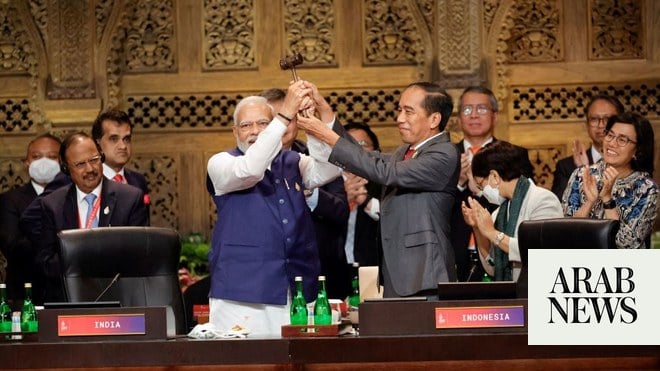
How should one feel about the first year of the Biden presidency?
I can’t really say I’m disappointed, since I didn’t have high hopes going into it. But I do feel dread. This last year has felt a bit like being trapped in a nail-biting intermission between two horror films. The opening instalment consisted of Donald Trump’s first four years in office – it ended with the cliffhanger of a deadly plague and a surreal, poorly executed, but still terrifying ransacking of the Capitol. The sequel practically writes itself, as the man ascends to power a second time, even more emboldened and determined to hold on to power.
Of course, the script is not yet set in stone. If regular people in the US get organised, we can help push the political class toward a different ending. But to do this effectively, we need to tell a story that begins earlier. To continue with the bad movie metaphors, the prequels are what got us into this mess.
For decades, senior Democrats tacked rightward, helping to create the social conditions that Trump and his cronies took advantage of to propel themselves to the White House. Instead of rolling back Reaganism and standing up to a swiftly radicalising conservative base, the party elite helped implement and further entrench an undemocratic, corporate agenda. Democratic functionaries slashed welfare, invested in the military and policing, deregulated the financial sector, increased fossil fuel production and lobbied for disastrous international trade deals.
The people who did this are Biden’s natural milieu – and they want Americans to believe their problems began in 2016. Establishment Democrats are desperate to paint Donald Trump and the Covid-19 pandemic as aberrations to an otherwise agreeable status quo. Thus a speedy “return to normal” is all it will take to cure what ails us.
The problem, however, is that “normal” was a crisis.
The political scientist Corey Robin recently pointed out a core paradox of the Biden administration. On the one hand, Biden has some important accomplishments under his belt: two enormous spending bills and crucial federal appointments, including dozens of judges. But, as Robin notes, they are tainted by an awareness of their fundamental inadequacy. These perilous times require more than generous spending bills and staffing tweaks – Americans need to restructure the economy, stabilise the environment and democratise the political system, before it’s too late.
Though never the progressive candidate, Biden briefly appeared to be willing to break with tradition and embrace a bolder approach. “When President Biden took office, he promised to make ending poverty a theory of change,” Shailly Barnes, policy director at the anti-poverty group, Poor People’s Campaign, told me. “While we saw glimmers of what that might have been, we have yet to see this implemented in practice. The 140 million people who are poor or one emergency away from economic ruin … need more than short-term or temporary assistance programmes.”
Consider one area I know well: the fight for student debt cancellation. Short-term assistance is all these borrowers have received, despite Biden’s promise of mass relief. Student debt cancellation is an interesting litmus test for the administration. While other proposals he campaigned on – such as raising the minimum wage and securing voting rights – require legislation to pass, the president has the power to cancel all federal student loans with a single signature.
But instead of picking up the pen, the president has balked and backtracked, misleadingly focusing on the few Ivy League graduates who would benefit from write-offs. At the end of last year, his administration publicly declared that turning student loan payments back on was a high priority for the administration. Why? A concern about optics: his advisers worry that further relief programmes would undercut messaging about the economy’s good health. Given this intransigence, activists like myself have had to fight the White House tooth and nail just to get it to extend the student loan payment pause to 1 May.
Here, the folly of Biden’s first year is on full display. Student debt cancellation would be a win for the American people and the administration. The more loans are cancelled, the more the economy is boosted and the more the racial wealth gap narrows. It is also incredibly popular with young voters, Black voters, and even Republicans. Given that it is a midterm year, delivering on this promise should be a no-brainer. Reform of the criminal punishment system is another area where progress has stalled, despite Biden having come to power after a wave of historic racial justice protests.
Members of the dominant, corporate wing of the Democratic party like to marginalise progressives and activists while presenting themselves as savvy and responsible realists. This strategy is both insulting and absurd: there’s nothing naive or irresponsible about wanting a decent and equitable society where people aren’t buried in unpayable debt and don’t have to live in fear of the police.
But the strategy is also self-defeating. “They think they are pissing on the left, but what they are really doing is failing to fight visibly [and] vocally for millions of everyday working people,” rural Pennsylvania organiser and author Jonathan Smucker told me. “There is no world in which that is good politics.”
The Biden administration has instead been engaged in a dispiriting saga of insider negotiations – negotiations that make an already restive public feel even more frustrated and abandoned.
Where the build back better bill is concerned, the president should have instructed his allies in Congress to load it up with extra investment that would mollify opposition and make it harder for his party’s obstructionists, like Kyrsten Sinema and Joe Manchin, to hold it hostage. As the organiser Will Lawrence, a co-founder of the youth-led environmental justice-focused Sunrise Movement, put it on Twitter: include a “buyout of coal industry shareholders, and a generous lifetime pension for every miner in West Virginia. Blanket the airwaves promoting it for two weeks in West Virginia. Then put it to a vote and dare Manchin to vote against it.”
If you are going to lose because a coal-baron senator is determined to derail your entire agenda and doom millions to deepening poverty and climate chaos, you may as well go down with a real fight. This fight should clarify for the public where the real problem is – not in culture war distractions, but the corruption of our political system by corporate interests – and it would make clear that the Democrats were firmly on their side.
President Biden’s first year has ultimately demoralised people, while also providing an opportunity for Republicans to appear poised to seize power. Last spring, a strategic memo by Representative Jim Banks, leader of the largest bloc of House conservatives, was leaked: “URGENT: Cementing GOP as Working-Class party.” It laid out one plot for the second feature of the horror film I keep imagining. Of course, reactionaries will never actually defend working people. But they’re busy crafting a deceptive and destructive script. And if the current administration doesn’t act, we’ll all be watching it soon.
Astra Taylor is a writer, organiser and documentary maker












